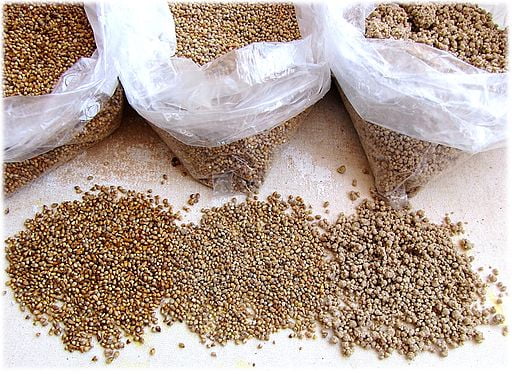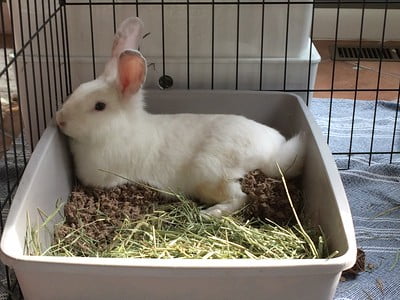Last Updated on March 8, 2023 by Marjon Ramos
The most common reasons why a rabbit is chewing its cage are boredom, being unneutered, hunger, and a small cage.
To stop your rabbit from chewing on its cage, you must first identify the source of the problem.
Boredom, loneliness, lack of exercise, a small cage, lack of food, or hormonal aggression are the most common causes of cage chewing.
But if your rabbit is just doing it every once in a while, you can try applying bitter spray on your rabbit’s cage bars.
You can also try clapping your hands whenever your bunny chews on their cage.
Most rabbits will get curious or startled when they hear a loud, unfamiliar sound.
Now that I’ve given you the gist of the article, read on as I explain in more detail how you can make your rabbit stop chewing on their cage:
Table of Contents
How to stop your rabbit from chewing on their cage?
Rabbits chewing on their cage can be quite annoying, especially at night.
Here’s what you can do to stop your rabbit from chewing their cage:
1. Neuter your rabbit.
Your rabbit’s chewing on its cage can be caused by hormone-related aggression. Rabbits who have reached sexual maturity often have this bout of aggressiveness because of their hormones.
Make sure that your rabbit is neutered when they are 6 months old because this is the time they reach sexual maturity.
If your rabbit has recently been neutered and the same behaviors are still happening, just be patient and give your rabbit more time.
It can take a couple of weeks to a month for your rabbit’s hormones to normalize.
2. Give your rabbits enough exercise.
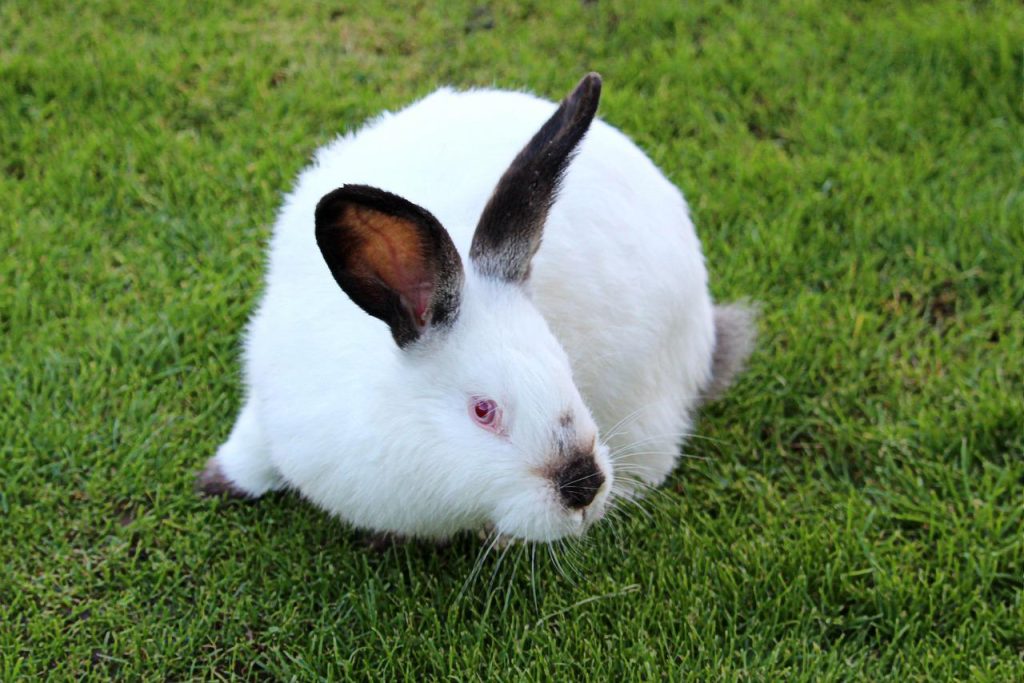
Rabbits are not meant to be kept in cages all day just sleeping, eating, and pooping.
In the wild, rabbits have the whole forest at their disposal to wonder and look for food.
Rabbits that are chewing on their cages are a sign of frustration and boredom.
Chewing on their cages is your rabbit’s way of communicating, “Hey! Let me out! I’m bored!”
You will also notice that rabbits often chew on the bars of their cages at night.
This is because rabbits are crepuscular creatures, meaning they are most active at dusk and dawn.
If you can’t let your rabbits out of their cage at night, consider getting them a playpen.
This would give them enough space to at least move and run around a little compared to a cramped cage.
3. Provide toys.
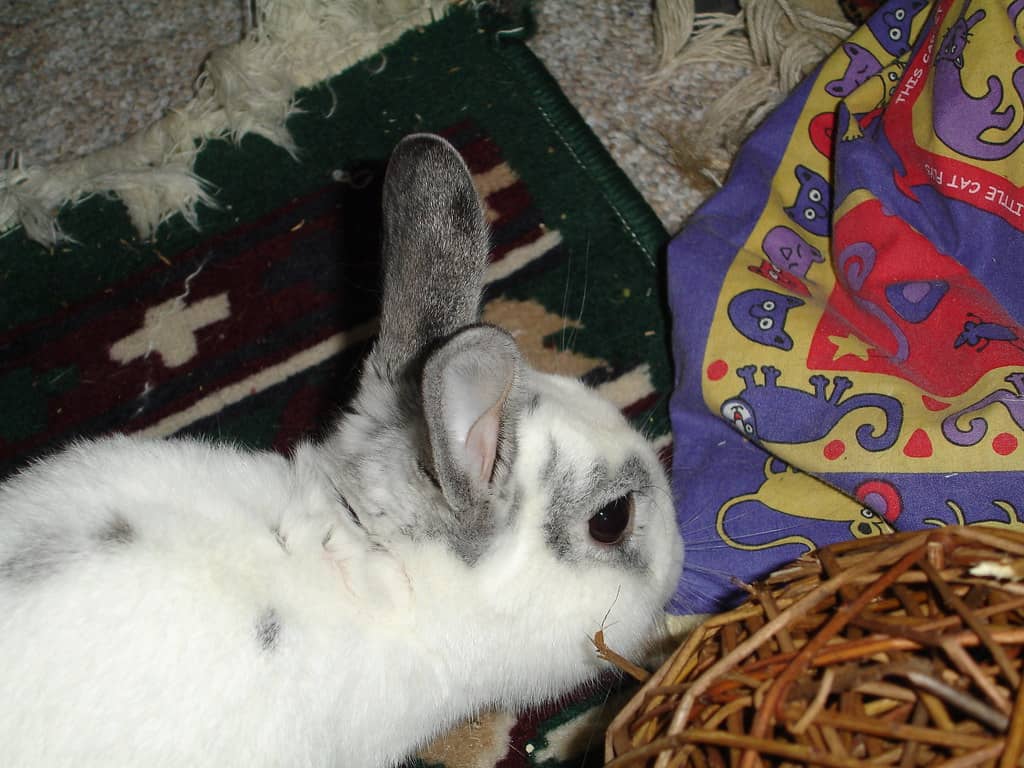
Boredom and frustration can be reduced by giving your rabbit a few toys. This would help in redirecting their desire to bite their cage.
Toys for rabbits should be those they can chew on. This type of toy has the added benefit of grinding your rabbit’s teeth.
Rabbits’ teeth grow continuously. That’s why they need to constantly chew on hard food because, otherwise, it could lead to malocclusion or overgrown teeth.
Wild rabbits can chew on twigs and branches to grind their teeth. On the other hand, domesticated pet rabbits are fed a diet that’s too soft to grind down their teeth.
To help your rabbit grind their teeth, make sure that their diet is mainly hay. You can also provide chew toys that are made of wood.
The most common and cheapest toy for rabbits is a simple toilet paper roll or cardboard boxes.
But if you want something a little fancier, you can buy your rabbit the following:
- Willow balls
- Willow bridge
- Willow sticks
- Wooden dumbbells
- Twig Tunnels
- Ka-Bob Chew Dispenser Toy
Here’s a great video that discusses the best toys to keep your rabbit busy and ease their boredom:
4. Get your rabbit a companion.
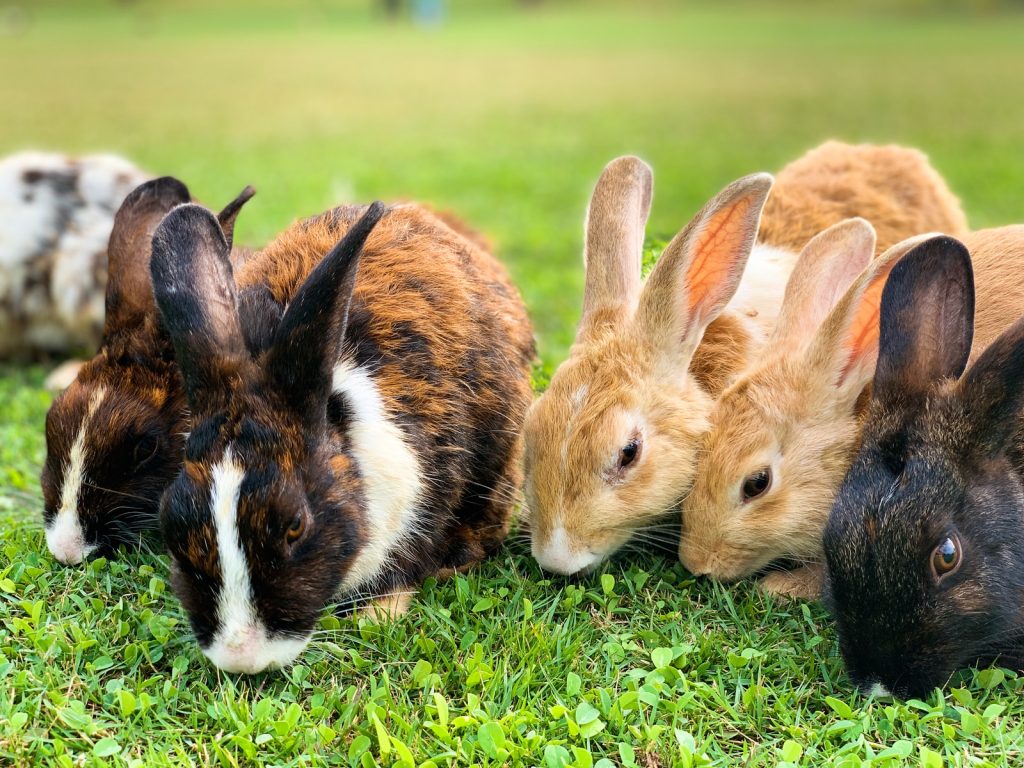
Rabbits are social creatures, and they require social interaction from other rabbits.
When there is not enough social interaction, rabbits become more aggressive, like biting and kicking their cages.
If you want the best chance of bonding, the best pairs for rabbits are male and female.
While both genders of rabbits can be paired, same-gender pairs are more likely to fight, especially male-male pairs.
If you won’t be able to give your rabbit enough attention, for example, if you’re always at work, then consider getting your rabbit a companion.
5. Provide more food.
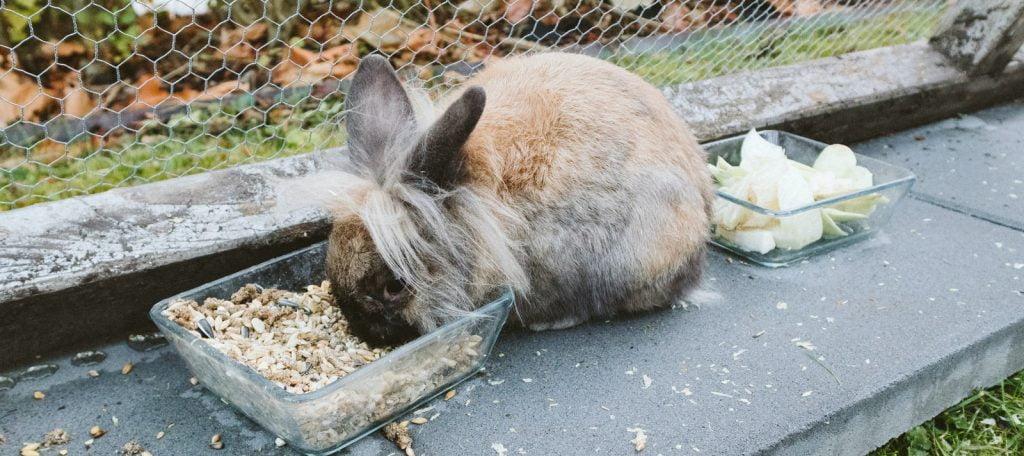
Your rabbit biting their cage bars could also be their way of saying “I’m hungry; give me some food!”
Rabbits who are hungry and confined in cages will often do anything to get your attention, including biting their cage. Your rabbits don’t have any choice. You are the source of food in the house.
If you’re always at work or away from home, make sure that your rabbit has a lot of hay and unlimited access to clean, drinkable water.
6. Get your rabbit a bigger cage.
And lastly, rabbits who have small cages can also be the cause of frustration that leads to cage chewing.
As I said earlier, rabbits have a ton of energy and they need to expend it somehow. Rabbits primarily like to do two things to expend their energy: running and chewing.
A small cage means that your rabbits can’t run. They’ll have to chew instead.
Get your rabbits bigger cages and toys to chew on to prevent them from chewing on their cage.
Another option is to combine a rabbit hutch and a play pen. But you must first address why your rabbit is excessively chewing before doing this.
Your rabbit will likely just chew on their hutch instead. Most hutches are made of wood, so the damage would be more severe.
But if possible, letting your rabbit free roam is the ideal situation for a pet rabbit. But make sure that you bunny-proof your home first to avoid damages to your property.
Summary
To stop your rabbit from chewing on its cage, you need to find the cause of the problem.
Unneutered rabbits with little exercise, no toys, no companions, and small cages chew on their cages.
This could cause your rabbits to be frustrated and lash out by engaging in aggressive behaviors like chewing their cage.
Cite this article:
Related Articles
Sources and further reading
- Buseth, Marit Emilie., and Richard A. Saunders. Rabbit Behaviour, Health, and Care. CABI, 2014.
- Lebas, F. The Rabbit: Husbandry, Health, and Production. Food and Agriculture Organization of the United Nations, 1997.
- Patry, Karen, et al. The Rabbit-Raising Problem Solver: Your Questions Answered about Housing, Feeding, Behavior, Health Care, Breeding, and Kindling. Storey Publishing, 2014.
- Toys for rabbits
- Neutering in Rabbits

